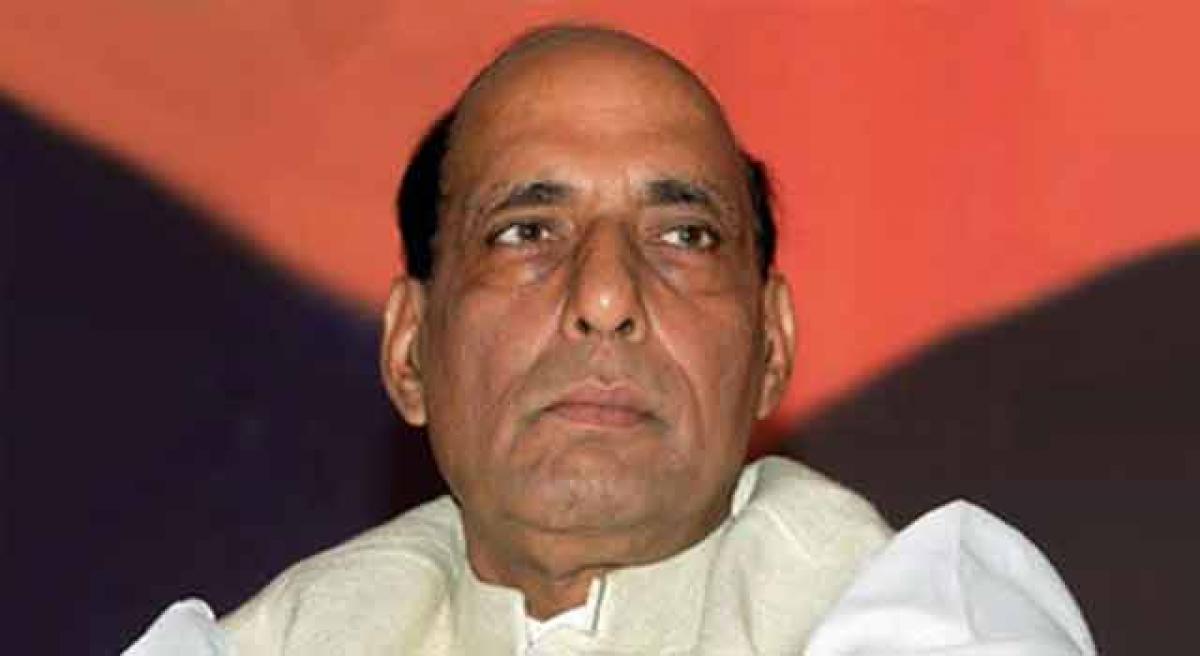Live
- Must-Watch OTT Originals in 2024: The Year’s Best Shows and Movies
- 40 Indian startups secure over $787 mn in a week
- India now formidable force on chess board
- Raghavendra Mutt pontiff visits Tirumala
- Whistleblower of OpenAI found dead in US apartment
- Trump’s US-first policy & India’s strategic latitude
- Chandrababu pays tribute to Potti Sriramulu and Sardar Vallabhbhai Patel
- India may miss TB elimination target
- Revolutionizing Women’s Health: The Era of AI
- Govt bill explains plan for ONOE
Just In

As political parties are split over moves to have simultaneous assembly and Lok Sabha polls, a Group of Ministers (GoM) led by Home Minister Rajnath Singh has decided not to take a final call on the issue for now.
New Delhi: As political parties are split over moves to have simultaneous assembly and Lok Sabha polls, a Group of Ministers (GoM) led by Home Minister Rajnath Singh has decided not to take a final call on the issue for now.
"There is no consensus among political parties. Some regional parties like Akali Dal, AGP and AIADMK support it in principle while others like Congress and Trinamool are opposed to it. Many parties find the suggestion impractical," a source said.
The Rajnath Singh-headed panel also includes Law Minister D V Sadananda Gowda, External Affairs Minister Sushma Swaraj and Minister of State for Personnel and PMO Jitendra Singh.
"So far the GoM is not willing to commit on simultaneous polls. But more meetings are likely," a source said. In December 2015, the Standing Committee on Law and Personnel in a report tabled in Parliament said the panel does not feel that simultaneous elections every five years cannot be held in the near future.
The 31-member committee is headed by Congress member E M Sudarsana Natchiappan and also includes Sukhendu Sekhar Roy (Trinamool), Abhishek Manu Singhvi (Congress) and K T S Tulsi (nominated).
Earlier this year, Prime Minister Narendra Modi said that frequent assembly elections across the country often created hurdles in taking welfare measures.
Modi's suggestion was rejected by a section of constitutional experts who felt Modi was banking on turning likely voter support in the Lok Sabha polls in his favour in state assembly battles too.
Those who don't favour simultaneous polls feel such a move would violate constitutional norms and encroach on the powers of states and state assemblies as Article 172(1) gives assemblies the power to hold elections every five years unless dissolved earlier.
"The Modi government is opposed to the autonomy of states. So we are against simultaneous polls," a Trinamool Congress leader who did not want to be identified by name said.
An independent study by think tank IDFC Institute of Mumbai says on an average, there was a 77 percent chance that the Indian voter will vote for the same party when elections are held simultaneously.
The Rajnath Singh panel will also make recommendations on the Election Commission's proposals to buy new set of Electronic Voting Machines (EVMs) as about nine lakh EVMs are nearing the end of their functional life, the sources said.

© 2024 Hyderabad Media House Limited/The Hans India. All rights reserved. Powered by hocalwire.com







